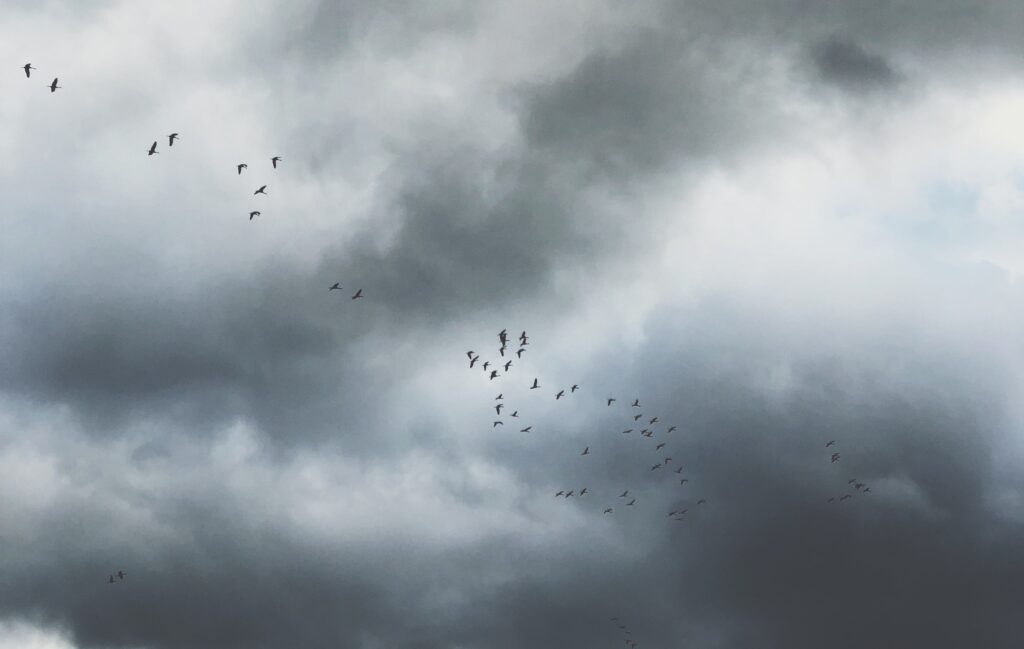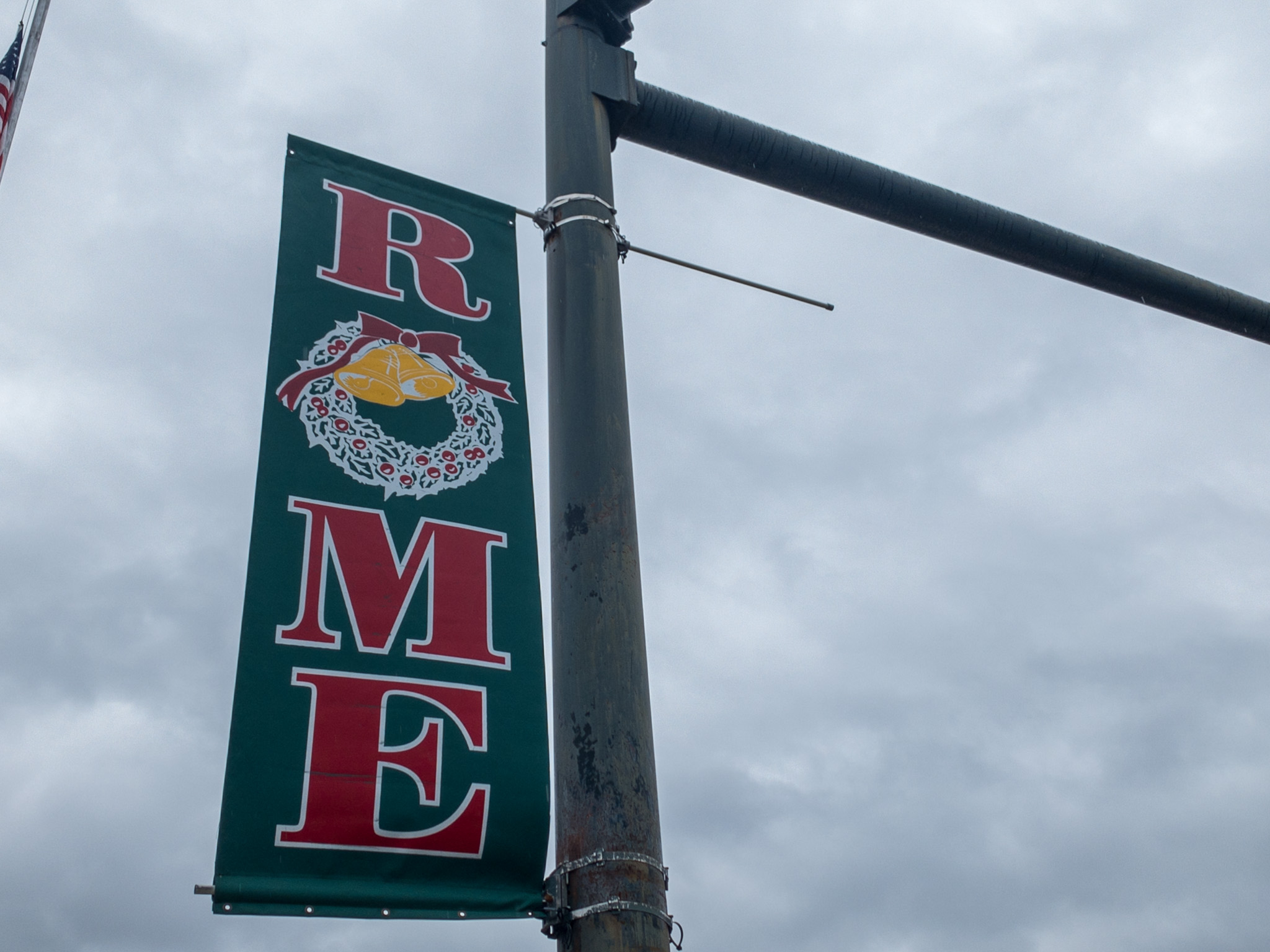Brian Harris is the Director of Operations and In-House Counselor for The Davies Shelters. The Davies Shelters is now able to offer counseling to a limited number of outside clients. Counseling sessions for outside clients through the Davies Shelters are $95 per session, and every session helps fund a counseling session for a guest at the shelters free of charge. Click here to learn more.
Last night, I was driving down Broad Street when I noticed some sort of holiday installation artwork at the 4th Avenue intersection. At the next intersection, there was another. And at the next, another. They were all unique and joyful and led me to appreciate the nuanced ways that Romans take care to decorate the city around the holidays. Simultaneously, I found myself thinking of the past – primarily of the old river boat holiday parade that my family used to attend when we were all younger. I remember those nights sitting on blankets laid on the levee, bundled up together in heavy coats and gloves watching the boats float by, each one meticulously decorated with festive lights that reflected off the obsidian-like water of the Oostanaula. And there was music. Choruses sang holiday songs until, eventually, when the show really got under way, someone with a mind for making memories would turn on Mannheim Steamroller. Harmonious orchestras and an array of colorful lights cut through the darkness of the cold winter night, and my family snuggled tightly as we all watched for the final boat to arrive – the one that brought Santa to Rome.
I’m older now, and I have a different understanding of hard work, and yet I’m still surprised by majesty when I see only the results of someone’s dedicated and practiced creative efforts. It’s no wonder I believed in Santa Claus back then.
I miss that annual event, and all that it meant and brought to life for my family and me. I’d be remiss to suggest it was just the river parade. It was the age. It was the world only being as big as my family, my friends, and my neighbors. Naivety’s way is to never announce itself until its departure. On the other hand, experience has a way of always managing to introduce you to everyone it brings to the party – especially during the holidays. I’ve experienced almost forty Christmases – the winter holiday my family chooses to celebrate together – and I’m aware that they are different than they once were. It’s hard not to notice when the table settings change; when there are more open spaces in the den than there once were; that the stories of past celebrations are told by septuagenarian grandsons to grandsons of their own. Holidays demand a passing of the guard whether we are ready for it or not.
So, what if we’re not ready?
We each will have a lifetime of holidays and, consequently, each holiday holds a lifetime. Sometimes that can be too much to bear. For many, the holidays are an annual reminder of that which is lost and, more specifically, our cherished companions that have died. For others, holidays are jarring reminders of what we’ve never had. They can be a mocking slight, motivating inner demons to speak louder and more cruelly than normal. They can remind us of our impulsive escape plans, be they bottle, needle, isolation – the list goes on. In short, by virtue of the holidays bringing great joy, they inevitably or eventually bring great grief.
It seems to me that we experience two overarching reactions to grief. One is to dive into the emotional experience to the extent that it stops us; we think obsessively and talk ceaselessly about that which is gone or who is no longer with us. In our own holding on, we refuse to let something or someone die. The other reaction is to manage that which we can control; we run as fast as possible into our work or various obligations and duties. We push away the final goodbye we so desperately need to say.
What winds up happening is the divers amongst us experience great breaks in life’s journey. We can’t work. We don’t take care of ourselves. We struggle and fall deeper and deeper into dysfunctional depressions. On the other hand, those of us who run refuse to take a break. We continue on with our head down and our hands busy. We insist we’re fine as we jump on the proverbial grenade, only to find later that its emotional explosiveness is unavoidable.

So, what do we do?
Perhaps an answer is to be mindful of our typical responses and to practice their opposite. Which camp do we fall into, divers or runners? Processing grief requires we depart from the normal rules by which we operate and instead try something new. We are a dynamic and vibrant species, capable of great resiliency and perseverance. That said, one of our great hang-ups is getting stuck in routine. There’s little we like more than for things to go exactly as planned. Divers like to dive. Runners like to run.
Being exceptional (as in the exception to the rule) rather than habitual takes intentionality and conscious effort. It means that we must try to be aware of our habitual ways of being. I find that I’m typically a runner – my response to grief is managing situations rather than feeling them. This can mean anything from notifying a list of family members and legal parties after the death of a loved one, to being the first one cleaning the table after Thanksgiving dinner has come to an end. I find it easier to push down those immediate experiences of pain and suffering, and I find it justifiable under the guise of, “Well, someone has to take care of things.” For me to be exceptional means that I need to practice stillness and patience, awareness and an openness to allow the pain to come to the surface. Beyond that, I need to speak it into existence with someone else. I need to let it breathe between and amongst those that can bear to carry it with me. I need to say the load is heavy, and I could use a hand.
For the divers amongst us, those enmeshed in our pain, living it out loud and desperately holding onto it, we must move gently and intentionally into the projects of life. That can be work, creativity, learning, exercise, whatever duty we can oblige ourselves to do. Start small and work up. These projects serve (at least) a dual purpose: they remind us we are capable of accomplishing goals and therefore serve to slowly but surely reinforce our sense of confidence and self-efficacy; secondly, they allow us to make small acts of creation that serve as a force against the destruction often left in the wake of grief. They allow us to be active participants in the ongoing cycle of life.
I once asked a client to tell his past-self something about his future. His answer was, “It gets better.” What an intuitive and expert lesson in honesty, grief, and hope. We often try to console ourselves with, “It’ll be okay.” But if the goal of dealing with grief is to be okay, I feel most of us would be in a constant state of, “Well, I’m not there yet!” But can we admit that it gets better? It seems like that’s something accomplishable. By its own measure and in its own time, grief gives way and life gets better.
The Davies Shelters is now able to offer counseling to a limited number of outside clients. Click here to learn more.


